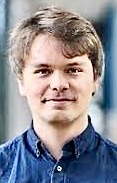 |
| Baptiste Piqueret |
 |
| Fererica Pirrone |
Information on other studies that can detect diseases can be found in Rollercoaster: How a man can survive his partner's breast cancer, a VitalityPress book that I, Woody Weingarten, aimed at male caregivers.
 |
| Baptiste Piqueret |
 |
| Fererica Pirrone |
Sen. Bob Casey, a Pennsylvania Democrat, needs to undergo surgery for prostate cancer but expects to make a full recovery.
 |
| Sen. Bob Casey |
Casey's seat is up for election in 2024. A potential challenger, Vigdor's article contends, is "David McCormick, a former hedge fund executive who lost last year's Republican primary against the celebrity physician Mehmet Oz for Pennsylvania's other Senate seat."
Pennsylvania is a swing state that's played a big role in the last two presidential elections.
Casey, who currently is in his third term, didn't mention any other treatments for the prostate cancer.
Health has played a major role in Pennsylvania politics recently. John Futterman, the state's lieutenant governor who beat out Oz, is recovering from a stroke that he had last May.
More information on surgeries and other disease treatments can be found in Rollercoaster: How a man can survive his partner's breast cancer, a VitalityPress book that I, Woody Weingarten, aimed at male caregivers.
President Biden's wife just underwent a surgical procedure for two common skin cancers, with a third remaining a question mark.
 |
| Dr. Jill Biden |
A second lesion, from the left side of her chest, was removed after being found while the 71-year-old First Lady was being prepped for the removal of the first. That, too, was confirmed to be basal cell carcinoma.
A third lesion from her left eyelid is being tested.
It is expected the cancers will spur her to amplify her long-time advocacy for "research into curing cancer" and her urging of people to get "regular screenings," Superville's article indicates.
POTUS' wife has been an advocate regarding the disease since 1993, long before her son's death in 2015 from brain cancer.
Her advocacy stems from four girlfriends — "including her pal Winnie, who succumbed to the disease" — being diagnosed with breast cancer. She confirmed in a speech last year that "Winnie inspired me to take up the cause of prevention and education," the AP story reports.
That initial impetus, the article continues, "led her to create the Biden Breast Health Initiative, one of the first breast health programs in the United States, to teach 16- to 18-year-old girls about caring for their breasts. Biden was among the staffers who went into Delaware's high schools to conduct lectures and demonstrations."
Her mother, Bonny Jean Jacobs, and father, Donald Jacobs, died of cancer — in 2008 and 1999, respectively. A few years ago, Superville's piece adds, "one of her four sisters needed an auto-stem cell transplant to treat her cancer."
According to the AP piece, her spokesperson, Vanessa Valdivia, declares that "the First Lady's fight against cancer has always been personal. She knows that cancer touches us all."
"Nothing like 'I've been there, done that' and being personally involved, [agrees] Myra Putin, a First Lady scholar at Rider College," the story notes.
When Beau Biden died in 2016, the current president was vice president. Shortly thereafter, he "helped push for a national commitment to 'end cancer as we know it."
Joe Biden resurrected what was known as the Cancer Moonshot initiative after he became president, and "aded a new goal of cutting cancer death rates by at least 50% over the next 15 years, and improving the experience of living with and surviving cancer for patients and their families," Superville's story explains.
In the years between Joe Biden serving as vice president and running for the top office, both Biden's headed up the Biden Cancer Initiative, a charity.
More information on advocacy and treatment of the various forms of the disease can be found in Rollercoaster: How a man can survive his partner's breast cancer, a VitalityPress book that I, Woody Weingarten, aimed at male caregivers.
 |
| Martina Navratilova |